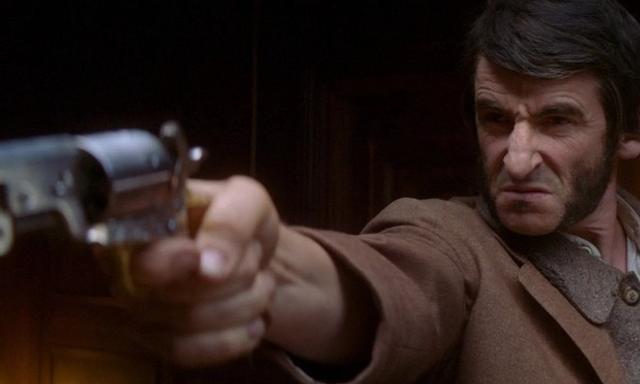Irish history isn't short of gripping tales, and the story of Patrick O'Donnell is among the stories best-suited to being retold in cinematic form.
'The Queen v Patrick O'Donnell' tells the true story of the murder of informant James Carey on a ship off the coast in South Africa in 1883.
James Carey testified against his fellow collaborators following the murder of two high-ranking British officials in Phoenix Park in 1882, and was sent on a ship to South Africa to avoid the notoriety gained after his exploits in court.
Told through slickly-shot and well-acted historical reconstructions as well as interviews with authorities on the subject, 'The Queen V Patrick O'Donnell' passes the main test of any piece of historical fiction:
It's still incredibly engrossing regardless of whether you know the outcome of the story or not.
Director Tomás Seoighe pulls off a few great tricks to get viewers engaged with the story, and the most notable to the trained eye is his usage of the objective camera.
The objective camera is an unseen character that acts as somewhat of an observer to the events unfolding, and when used well, it sucks viewers into the action.
The usage of the objective camera here is one of the masterstrokes of the film, and as the 'Rashomon' version of events unfolds in front of the viewer's eyes, audiences are given a front-row seat to the events and are encouraged to come to their own conclusions.
Any good historical docu-drama draws upon a crack team of historical experts to help flesh out the story, and the juxtaposition of historians retelling the events and tying it to the modern-day is another shrewd move on the part of the producers.
The story of Patrick O'Donnell seems tailor-made for the screen, and 'The Queen v Patrick O'Donnell' fulfils the rich cinematic potential of the story.
There is a strong political current to the film owing to the nature of the events depicted, and the film lets viewers come to their own conclusions about who was in the right and wrong, with the experts offering differing views on what happened.
Letting viewers draw their own conclusions about what happened is a tightrope for any director to walk - Oliver Stone made his career off this - but Seoighe pulls it off with aplomb.
Between this and RTE's recent 'Treaty Live', Irish media is entering into a renaissance of sorts of well-produced, well-acted and engaging historical retellings of major Irish historical events.
There are some nice artistic flourishes in the film, such as the smoky cinematography, the claustrophobic feeling of the ship, some moody lighting in the courtroom and interrogation settings.
The film pulls off something that is more unquantifiable; the actors in the project look like they were transported from the 1880s.
The outfits and set design are era-appropriate, but the actors depicting the historical figures are well-cast, and this subtle bit of production helps elevate the project.
All told, 'The Queen v Patrick O'Donnell' is a fascinating look at an explosive chapter in Irish history, and this well-produced mix of courtroom drama and political thriller is well worth a watch.









































































